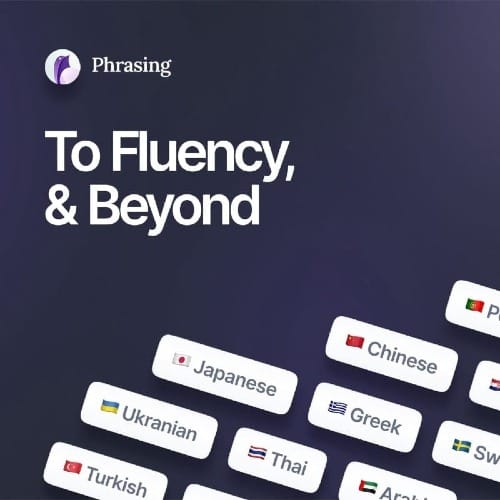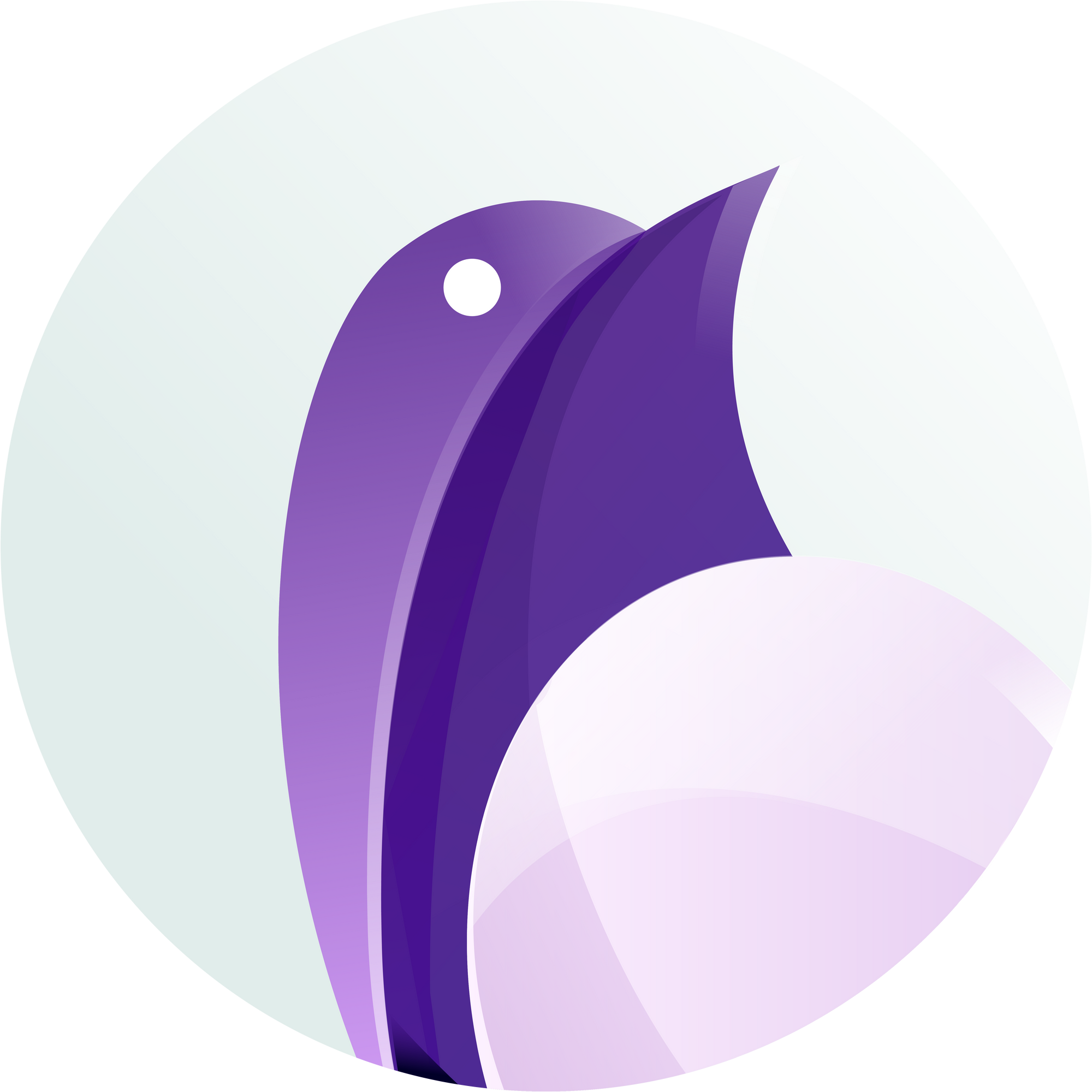How To Start Learning A Language In 2024: 5 Structured Stages For An Efficient Kick-Start
Your ultimate structured language learning plan that is divided into sequential stages, with each stage focusing on different skill sets to ensure a balanced approach to language learning.

Learning a language can definitely be described as an adventure - it has it's highs and it's lows, but is always accompanied by a feeling of accomplishment. With the advent of the internet, there are so many language to explore, it takes a thoughtfully crafted plan to navigate this journey.
When setting new language learning goals, people tend to search for topics that cover a wide range of domains to help them build a solid foundation in their language studies.
Today, we present a comprehensive roadmap tailored to guide language enthusiasts from fundamental basics to conversational fluency and beyond.
Stage 1: Language Immersion (from day 1)
Immersing in a Symphony of Speech and Culture
It's never to late to start immersing yourself in a language. Even if you're not actively studying, being exposed to the sounds and the cadence in a language will help train your brain to recognize parts of the language.
The most important thing you can do when learning a language is just to hear it as much as possible! As you continue through the rest of the steps, you'll be able to understand more and more, which will be motivating to keep you going.
Listen to music, watch tv in the language (with english subtitles if you want),
Speaking and Conversation Practice
Bring your language out into the world by:
- Engaging in language exchange meetups, which are fantastic platforms for practicing conversational skills in a supportive environment.
- Practicing regularly with a conversation partner, ideally a native speaker.
Cultural Insights
Understanding cultural context elevates your language:
- Learn about holidays, social norms, and daily life in regions where the language is spoken.
- Acquaint yourself with common idiomatic expressions that give you insight into the cultural psyche. Watching
Stage 2: Foundation Building (1-3 months)
Laying the Groundwork for Language Comprehension
Basic Vocabulary Learning
Start learning any language by immersing yourself in the most essential aspect of language - words. Start by:
- Mastering the 100 most common words to gain the quick ability to form simple phrases.
- Incorporating basic greetings, expressions of gratitude, and polite apologies into your repertoire.
Grammar Fundamentals
A firm grasp of grammar is the backbone of language fluency. At this stage, focus on:
- Grasping the present tense and constructing simple subject-verb-object sentences.
- Familiarizing yourself with personal pronouns and elementary verb conjugations.
Pronunciation and Phonetics
The beauty of a language is often in its pronunciation. Strengthen your speaking skills by:
- Learning the alphabet and the unique sounds of your target language.
- Practicing pronunciation regularly to build confidence and reduce accent.
Stage 3: Conversational Basics (3-4 months)
Building Blocks for Basic Interactions
Conversational Phrases
As you expand your vocabulary, start using words into sentences that serve real-life conversations:
- Learn phrases applicable to daily activities and situations such as eating out, shopping, and navigating public transport.
- Engage in simple conversational practices to solidify your speaking skills.
Listening Comprehension
Challenge your ears with diverse content:
- Introduce varied audio materials, such as radio shows, podcasts, and even children's shows, which often use clear and simple language.
- Begin to watch videos without subtitles to test your understanding.
Reading and Writing
Literacy is a critical piece of the language puzzle. Strengthen these skills through:
- Regular practice in reading and writing basic sentences.
- Handwriting exercises, especially for languages with non-Latin alphabets.
- Netflix: Watching shows and movies in the target language, without subtitles, can immerse you in the language and culture.
Stage 4: Practical Application (5-6 months)
Enhancing Language Utilities for Everyday Scenarios
Elevated Grammar Fundamentals
Scaling grammar mountain pays dividends as you frame thoughts more complexly:
- Delve into past and future tense conjugations.
- Study indispensable grammar components like prepositions, conjunctions, and descriptive adjectives.
Elevated Conversational Phrases
Gear up for more nuanced dialogue as you:
- Add layered phrases to your cache for managing a wider array of social instances.
- Role-play realistic scenarios to prepare for real-world interactions.
Elevated Listening Comprehension
Challenge your ears with diverse content:
- Introduce varied audio materials, such as radio shows, podcasts, and even children's shows, which often use clear and simple language.
- Websites like News in Slow French or News in Slow Spanish etc. have content tailored for learners who want to improve listening comprehension through current events told at a slower pace.
- Begin to watch videos without subtitles to test your understanding.
Stage 5: Advanced Engagement (6+ months onwards)
Refining Proficiency through Thoughtful Practice
Advanced Topics
Dive into deep waters by discussing substantial and abstract ideas, expanding your capacity to use language in diverse settings.
One unique tip is watching TED Talks in your target language. It can expose you to advanced concepts and vocabulary, ideal for higher-level language practice.
Tailored Language Learning Strategies
Reflect on your progress and adapt your strategies to optimize learning by:
- Setting specific goals based on your experiences.
- Staying flexible in your approach to overcome plateaus.
Crossing the intermediate language learning plateau often requires engaging with more complex and nuanced concepts. By embracing topics that necessitate sophisticated vocabulary and advanced grammatical structures, language learners can break through the barriers of intermediate proficiency and journey towards mastery.
Speaking and Listening Fluency
Aim for fluency by:
- Focusing on thinking in the target language, which aids in reaching some of the highest levels of linguistic mastery.
- Engaging fully without relying on translations from your mother tongue.
The Art of Thinking in a New Language: Attaining True Speaking and Listening Fluency
Ever-Evolving, Lifelong Language Development
Saturate Yourself in Culture: Advancing Cultural Proficiency
Expand your cultural intelligence by exploring the literature, history, and various dialects in depth.
Participating in cultural events and experiences, such as festivals, music, and art exhibitions, can provide a more immersive understanding of the nuances within different cultures.
Niche Expertise: Acquiring Specialized Vocabulary
When delving into specific fields, choosing to master the jargon isn't merely about expanding your vocabulary—it's a strategic move that enables more effective and nuanced communication within that domain.
This focus can:
- Elevate your professional standing among peers who value the precision and expertise that specialized language signifies.
- Open up opportunities for networking, collaboration, and career advancement as you're able to engage with complex concepts and industry-specific discussions fluently.
LinkedIn Learning or similar professional development platforms: Offers courses and webinars in different languages that can help build niche expertise.
In essence, strategic language learning is about aligning your linguistic skill set with your professional and personal goals to maximize potential benefits in your area of interest.
The Lifelong Language Journey: Active Maintenance and Everyday Use
Keep the language alive and thriving in your daily life by:
- Continuing to participate in language discussions and communities.
- Consistently revisiting and practicing all aspects of the language across different media platforms.
This learning journey is crafted to provide structure while allowing for personal adaptation.
When setting your goals, consider starting with foundational elements such as basic vocabulary and grammar, then broadening your focus to more interactive skills such as listening and speaking. This gradual process will help ensure a comprehensive learning experience.
Phrasing.app for Personalized Learning (Integrated throughout all stages)

Phrasing.app understands where you are on your language learning journey by assessing your current competency and offering materials that cater to your exact stage. It helps you navigate through the crucial stages of comprehension and conversation using content from real-world scenarios
By incorporating Phrasing.app into your language learning strategy, the journey becomes less daunting and more tailored to your pace and style. Phrasing.app's adaptive technology enhances each stage of the structured language journey presented earlier, integrating personalization and tech-driven support for a holistic and dynamic learning experience.
